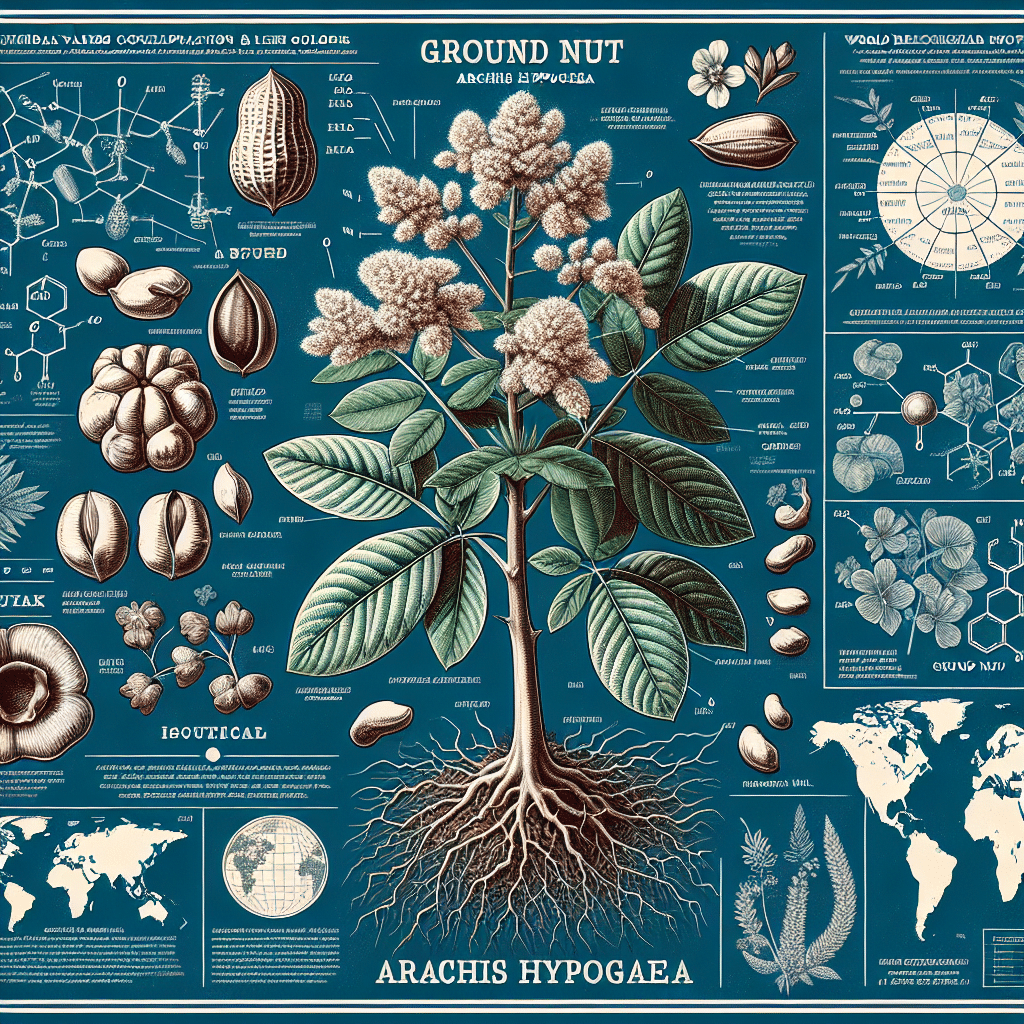Scientific Name of Ground Nut: Unveiling the Mystery
-
Table of Contents
- Ground Nut Scientific Name: Decoding the Botanical Identity
- The Botanical Nomenclature of Ground Nut
- Origins and Domestication
- Nutritional Profile and Health Benefits
- Economic and Agricultural Significance
- Ground Nut Allergies and Challenges
- Conclusion: Unveiling the Ground Nut’s Scientific Identity
- Discover ETprotein’s Plant-Based Protein Offerings
Ground Nut Scientific Name: Decoding the Botanical Identity

Ground nuts, commonly known as peanuts, are a staple in diets around the world, revered not only for their culinary versatility but also for their nutritional benefits. Despite their widespread popularity, the scientific name of the ground nut remains a mystery to many. This article aims to unveil the botanical identity of the ground nut, explore its origins, and delve into its significance in various fields.
The Botanical Nomenclature of Ground Nut
The scientific name of the ground nut is Arachis hypogaea. This name is derived from Greek, where “Arachis” means “legume” and “hypogaea” means “under the earth,” referring to the unique way in which the ground nut’s fruits develop underground. The classification of the ground nut is as follows:
- Kingdom: Plantae
- Phylum: Magnoliophyta
- Class: Magnoliopsida
- Order: Fabales
- Family: Fabaceae
- Genus: Arachis
- Species: A. hypogaea
Understanding the scientific name is crucial for researchers and agriculturists as it helps in distinguishing the ground nut from other species within the Arachis genus.
Origins and Domestication
The ground nut is believed to have originated in South America, with archaeological evidence suggesting that it was domesticated as far back as 7,500 years ago. The cultivation of ground nuts spread throughout the continent and eventually reached other parts of the world through Spanish and Portuguese explorers.
Nutritional Profile and Health Benefits
Ground nuts are not only a delicious snack but also a powerhouse of nutrition. They are rich in essential nutrients such as protein, healthy fats, vitamins, and minerals. Here are some of the key nutritional benefits of ground nuts:
- High in protein, making them an excellent plant-based protein source
- Contain heart-healthy monounsaturated and polyunsaturated fats
- Rich in antioxidants, such as vitamin E and resveratrol
- Source of dietary fiber, which aids in digestion and weight management
- Provide essential minerals like magnesium, phosphorus, and potassium
The consumption of ground nuts has been associated with various health benefits, including a reduced risk of heart disease, control of blood sugar levels, and even a lower risk of certain types of cancer.
Economic and Agricultural Significance
As a crop, ground nuts play a significant role in the global economy. They are cultivated in tropical and subtropical regions around the world, with China, India, and the United States being the top producers. The versatility of ground nuts means they can be used in a variety of products, from peanut butter to cooking oil, and even as animal feed.
The cultivation of ground nuts also has environmental benefits. As legumes, they have the ability to fix nitrogen in the soil, which can improve soil fertility and reduce the need for chemical fertilizers.
Ground Nut Allergies and Challenges
Despite their benefits, ground nuts are also known for being one of the most common food allergens. Peanut allergies can be severe and life-threatening, leading to increased research into hypoallergenic peanut varieties and alternative sources of similar nutritional value.
Conclusion: Unveiling the Ground Nut’s Scientific Identity
The scientific name of the ground nut, Arachis hypogaea, is a testament to its unique growth pattern and rich history. Understanding its botanical identity allows for better research, cultivation, and appreciation of this remarkable plant. Ground nuts continue to be a valuable resource for nutrition, economy, and agriculture, with ongoing studies to mitigate the challenges associated with peanut allergies.
Discover ETprotein’s Plant-Based Protein Offerings
If you’re looking for high-quality plant-based protein sources, ETprotein offers a range of products that cater to various dietary needs. Their selection includes organic rice protein, clear rice protein, pea protein, clear pea protein, pumpkin seed protein, sunflower seed protein, mung bean protein, and peanut protein. These products are non-GMO, allergen-free, and characterized by a neutral taste, making them ideal for inclusion in a variety of applications.
About ETprotein:
ETprotein, a reputable protein Chinese factory manufacturer and supplier, is renowned for producing, stocking, exporting, and delivering the highest quality organic bulk vegan protein and plant proteins. They include Organic rice protein, clear rice protein, pea protein, clear pea protein, pumpkin seed protein, sunflower seed protein, mung bean protein, peanut protein etc. Their offerings, characterized by a neutral taste, non-GMO, allergen-free attributes, cater to a diverse range of industries. They serve nutraceutical, pharmaceutical, cosmeceutical, veterinary, as well as food and beverage finished product distributors, traders, and manufacturers across Europe, USA, Canada, Australia, Thailand, Japan, Korea, Brazil, and Chile, among others.
ETprotein specialization includes exporting and delivering tailor-made protein powder and finished nutritional supplements. Their extensive product range covers sectors like Food and Beverage, Sports Nutrition, Weight Management, Dietary Supplements, Health and Wellness Products, and Infant Formula, ensuring comprehensive solutions to meet all your protein needs.
As a trusted company by leading global food and beverage brands and Fortune 500 companies, ETprotein reinforces China’s reputation in the global arena. For more information or to sample their products, please contact them and email sales(at)ETprotein.com today.












